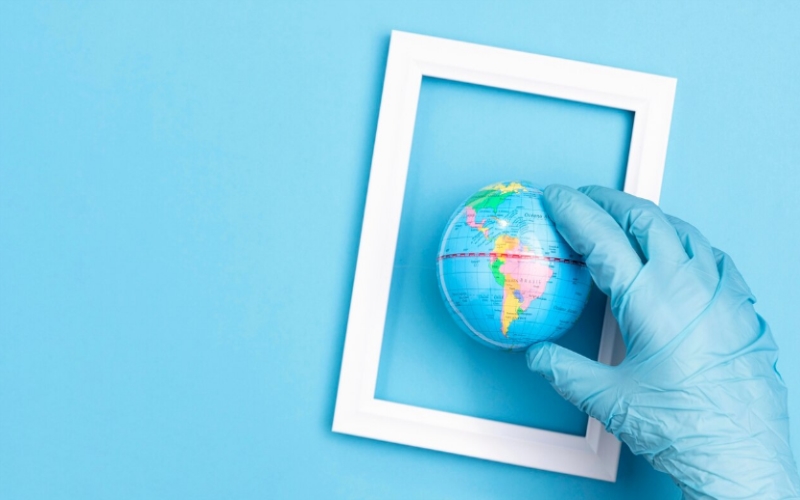How Medical Groups Drive Global Health Initiatives
In the interconnected world of today, medical groups play a pivotal role in advancing global health initiatives. These organizations, which encompass a wide range of entities including medical associations, non-profit organizations, and professional networks, are at the forefront of addressing health challenges that transcend national borders. They engage in diverse activities ranging from disease prevention and treatment to health education and policy advocacy. By collaborating across disciplines and regions, medical groups have become instrumental in shaping the future of global health.
The Role of Medical Associations in Global Health
Medical associations are professional organizations that unite healthcare professionals within a specific field or geographic area. These associations have long been involved in improving healthcare standards and advocating for the interests of medical practitioners. However, their role in global health has expanded significantly in recent years.
One of the primary ways medical associations contribute to global health is by setting and promoting standards of care. They develop clinical guidelines that inform healthcare practices worldwide, ensuring that treatments are based on the latest evidence and best practices. For example, the World Medical Association (WMA) plays a critical role in establishing ethical standards for medical practice globally. Its Declaration of Helsinki, which outlines ethical principles for medical research involving human subjects, is a cornerstone document that guides researchers and institutions worldwide.
Medical associations also facilitate knowledge exchange and capacity building. Through conferences, workshops, and online platforms, they provide opportunities for healthcare professionals to share insights and innovations. This exchange of knowledge is crucial for addressing emerging health threats and improving healthcare delivery. For instance, the American Medical Association (AMA) has collaborated with international partners to provide training and resources to healthcare workers in underserved regions, enhancing their ability to respond to local health challenges effectively.
In addition to these efforts, medical associations advocate for policies that promote global health equity. They engage with governments, international organizations, and other stakeholders to influence policy decisions that impact health outcomes. By advocating for universal healthcare access, equitable distribution of resources, and investment in health systems, medical associations work to address the root causes of health disparities.
Medical Relief and Humanitarian Efforts
In times of crisis, medical groups play a vital role in providing relief and humanitarian aid. Natural disasters, conflicts, and epidemics can devastate communities, leaving them in urgent need of medical assistance. Medical relief organizations are often among the first responders in such situations, delivering essential care and support to affected populations.
Medical relief efforts encompass a wide range of activities, including emergency medical care, vaccination campaigns, and mental health support. Organizations like Médecins Sans Frontières (Doctors Without Borders) deploy teams of healthcare professionals to crisis zones, where they provide lifesaving interventions and support local healthcare systems. Their work is guided by principles of neutrality and impartiality, ensuring that aid is delivered based on need rather than political or religious considerations.
In addition to immediate relief efforts, medical groups also engage in long-term recovery and development initiatives. They work to rebuild healthcare infrastructure, train local healthcare workers, and implement programs that address ongoing health challenges. These efforts are essential for ensuring that communities can recover and build resilience against future crises.
Medical relief organizations also play a critical role in addressing the social determinants of health that contribute to vulnerability in crisis situations. By working to improve access to clean water, nutrition, and education, they help create environments where health can flourish. This holistic approach recognizes that health is influenced by a complex interplay of factors and that addressing these determinants is key to achieving sustainable improvements in health outcomes.
Collaborative Approaches to Global Health Challenges
The complexity of global health challenges necessitates collaborative approaches that bring together diverse stakeholders. Medical groups are well-positioned to facilitate these collaborations, as they have established networks and expertise across various health domains.
One example of successful collaboration is the Global Polio Eradication Initiative (GPEI), which brings together governments, international organizations, and medical groups to eliminate polio worldwide. Through coordinated vaccination campaigns and surveillance efforts, the GPEI has made significant progress toward eradicating the disease, demonstrating the power of collaborative action in tackling global health challenges.
Medical groups also collaborate with academic institutions to advance research and innovation. By fostering partnerships between researchers and healthcare practitioners, they facilitate the translation of scientific discoveries into practical solutions for health problems. This collaboration is crucial for addressing complex health issues such as antimicrobial resistance, which requires coordinated efforts across disciplines and sectors.
Furthermore, medical groups engage with communities to ensure that global health initiatives are culturally sensitive and responsive to local needs. By involving community leaders and stakeholders in the planning and implementation of health programs, they build trust and promote community ownership of health initiatives. This approach enhances the effectiveness and sustainability of interventions, as it ensures that they are aligned with the values and priorities of the communities they serve.
The Impact of Technology on Global Health Initiatives
Technology has revolutionized the field of global health, providing new tools and approaches for addressing health challenges. Medical groups have been at the forefront of leveraging technology to enhance the reach and impact of their initiatives.
Telemedicine is one such technological advancement that has transformed healthcare delivery, particularly in remote and underserved areas. Medical groups have implemented telemedicine programs that connect patients with healthcare providers through digital platforms, overcoming geographical barriers and improving access to care. These programs have been particularly valuable during the COVID-19 pandemic, enabling the continuation of care while minimizing the risk of infection.
Data analytics and artificial intelligence (AI) are also playing an increasingly important role in global health initiatives. Medical groups are using these technologies to analyze health data, identify patterns, and predict disease outbreaks. This information is critical for guiding public health responses and allocating resources effectively. For example, AI-powered predictive models have been used to anticipate the spread of infectious diseases such as Ebola, allowing for timely interventions and containment efforts.
Moreover, technology has facilitated health education and awareness campaigns on a global scale. Medical groups have harnessed the power of social media and digital platforms to disseminate information about health issues and promote healthy behaviors. These campaigns have been instrumental in reaching diverse audiences and engaging them in conversations about health, ultimately contributing to behavior change and improved health outcomes.
Challenges and Future Directions
While medical groups have made significant contributions to global health, they also face numerous challenges that must be addressed to maximize their impact. One of the primary challenges is securing sustainable funding for global health initiatives. Many medical groups rely on donations and grants, which can be unpredictable and insufficient to meet the growing demand for services. To address this challenge, medical groups must explore innovative financing mechanisms and build partnerships with the private sector to ensure long-term financial sustainability.
Another challenge is navigating the complex political and regulatory environments in which global health initiatives operate. Medical groups must engage with governments and international organizations to advocate for policies that support their work and remove barriers to healthcare access. This requires diplomatic skills and a deep understanding of the political landscape, as well as a commitment to transparency and accountability.
Furthermore, medical groups must continue to prioritize equity and inclusion in their global health initiatives. This involves addressing the unique needs of marginalized populations and ensuring that their voices are heard in decision-making processes. By adopting a rights-based approach to health, medical groups can work toward reducing health disparities and promoting social justice.
Looking ahead, medical groups have a crucial role to play in advancing the global health agenda. By leveraging their expertise, networks, and resources, they can drive progress toward achieving universal health coverage and the Sustainable Development Goals (SDGs). This will require continued collaboration, innovation, and a commitment to addressing the root causes of health inequities.
Conclusion
Medical groups are key drivers of global health initiatives, working to improve health outcomes and reduce disparities worldwide. Through their efforts in standard-setting, medical relief, collaboration, and technology adoption, they have demonstrated the power of collective action in addressing complex health challenges. As the global health landscape continues to evolve, medical groups must remain adaptable and resilient, forging partnerships and leveraging innovations to create a healthier, more equitable world for all.






